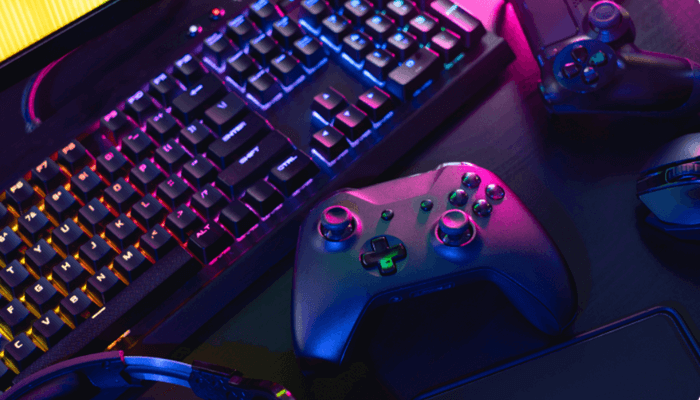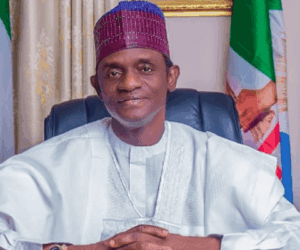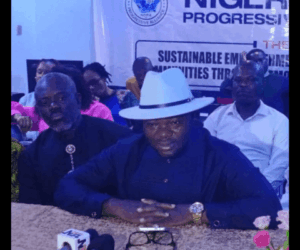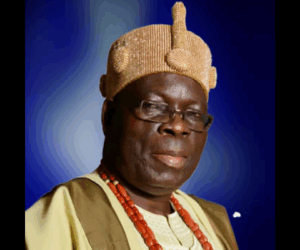Nigeria’s gaming business is no longer just a pastime but is a rapidly accelerating economic engine that challenges the dominance of traditional creative giants such as Nollywood and music.
The sector is rapidly becoming a pivotal driver of the nation’s creative economy and a significant source of digital jobs fuelled by a massive and mobile-savvy youth population.
According to the PricewaterhouseCoopers (PwC) Africa Entertainment and Media Outlook for 2025–2029, the Nigerian gaming market generated a staggering $176 million in revenue in 2024. The sector boasts the highest projected Compound Annual Growth Rate (CAGR) of 7.4 percent through 2029 among Africa’s big three markets, which are Nigeria, South Africa, and Kenya.
The surge is powered by mobile gaming, which leverages Nigeria’s increasing smartphone and internet penetration. This growth has successfully broadened the customer base to include the young middle-class, shattering the old stereotype that gaming only attracts lower-income earners.
Read also: Lagos warns NASS against ditching SCourt in proposed Gaming Bill
Research shows that the video game market alone is expected to reach an impressive $1.3 billion by 2028, with mobile gaming accounting for over $1 billion of that figure.
This expansion creates a booming demand for creative and tech professionals, including game developers, artists, animators, and programmers. This is injecting life into the broader creative economy, where sectors like gaming are now employing more young people than some traditional industries.
Competitive gaming, or e-sports, is also emerging as a significant new segment, with the industry projected to be worth $20 million by 2028 and growing at an explosive CAGR of 25.2 percent.
The gaming sector’s embrace of digital technology is paving the way for Nigeria to emulate global trends. Despite its immense potential, the overall creative industry is targeting an annual value of $100 billion by 2030.
The Federal Ministry of Art, Culture & the Creative Economy, now explicitly including video gaming in its growth strategy, has been officially recognised as a job-creation powerhouse and a cultural export.
Local creative studios are not just copying global trends, but they are innovating by incorporating indigenous languages and Nigerian cultural themes into their games. This push for localisation is a sharp business move, allowing them to tap into neglected markets and proudly export Nigerian culture to a global audience.
The studios leading the charge are doing more than just building apps; they’re digitising Nigerian culture. They are also proving that local flavors can be a global hit, using mobile-first strategies to reach the masses.
Here are some key Nigerian game development studios focused on cultural content and localization:
Maliyo Games
Notable games are Whot King (digital version of the popular Nigerian card game), Okada Rider, and Disney Iwájú: Rising Chef (featuring Nigerian dishes like Jollof Rice).
Its key focus is pioneering African-inspired mobile games that reflect daily life, culture, and cuisine. Maliyo Games is the first African developer to partner with Disney Games on the Iwájú title. It was featured by Google Play and Apple for African storytelling.
Kucheza Gaming
Notable games are The Wild Kingdoms (an adventure game based on Yoruba mythology), Oga Train Station (an idle tycoon game built on the Naija ‘hustle’ concept).
Focused on translating African folklore and mythology, particularly Yoruba legends, into immersive digital experiences. The Wild Kingdoms game saw a significant number of downloads in Brazil, highlighting the global connection to African heritage.
Read also: NOTAP charts new regulations to drive Nigeria’s $1bn gaming industry
ChopUp Games
Notable games are Danfo (a racing game based on the iconic Lagos commuter buses), Jagun: Clash of Kingdoms (exploring African warrior themes).
The key focus is to create games centered around Nigerian urban experiences, culture, and storytelling. It is known for using games to promote cultural pride and preserve local stories.
Gamsole
Notable game is Gidi Run (an endless runner game set in the streets of Lagos). It is focused on building high-quality, fun, and addictive mobile games with African-themed narratives.
Its founder, Abiola Olaniran, has been recognised by Forbes and Microsoft for his work in the mobile gaming space.









